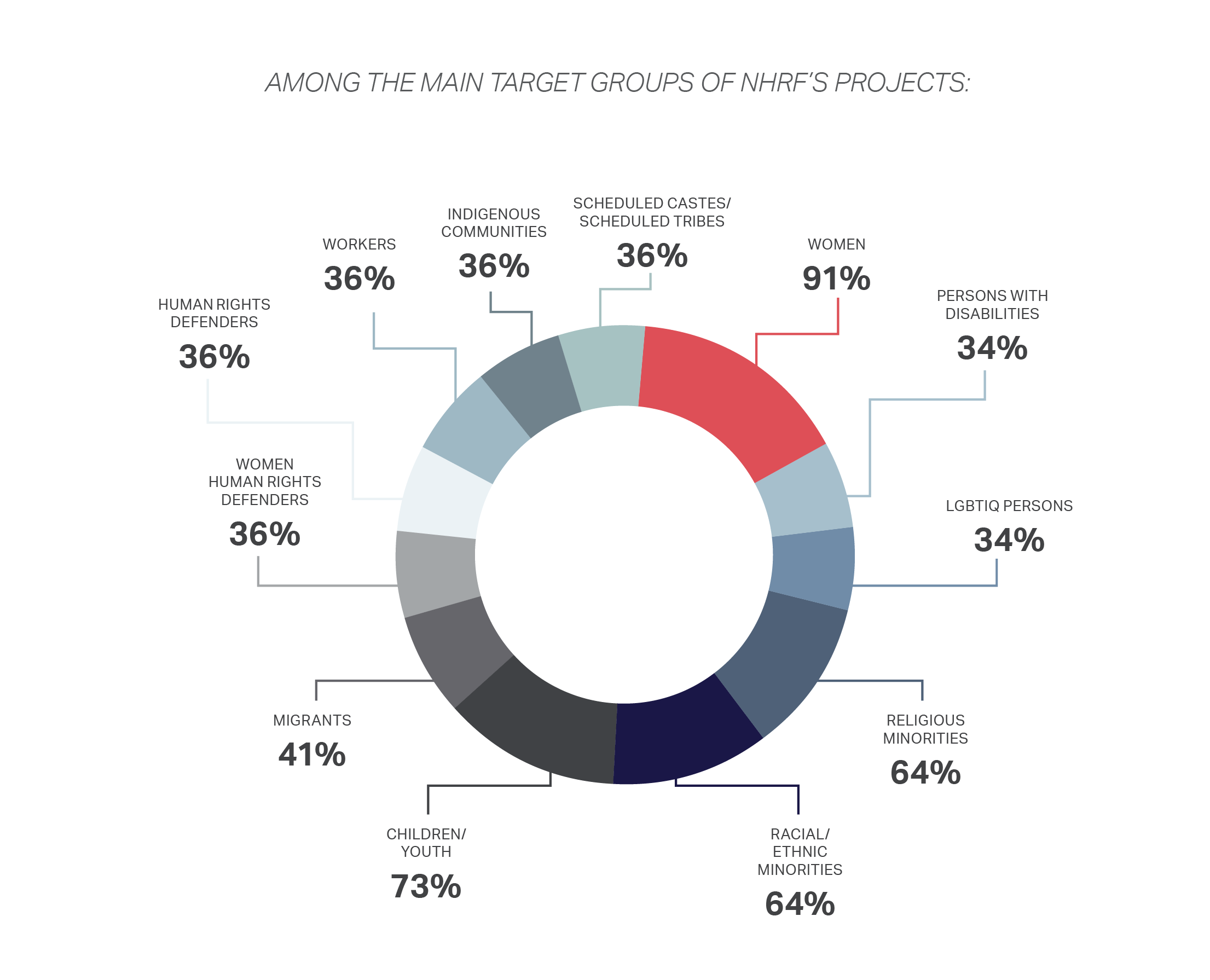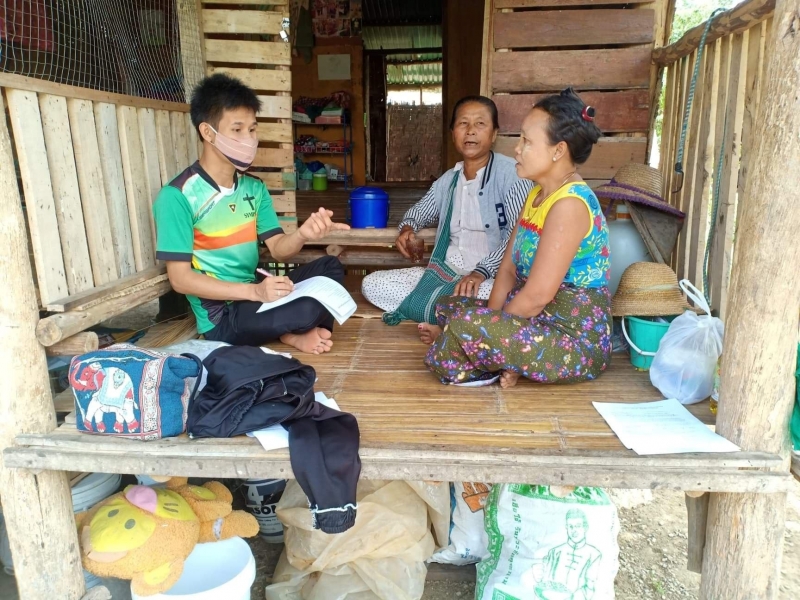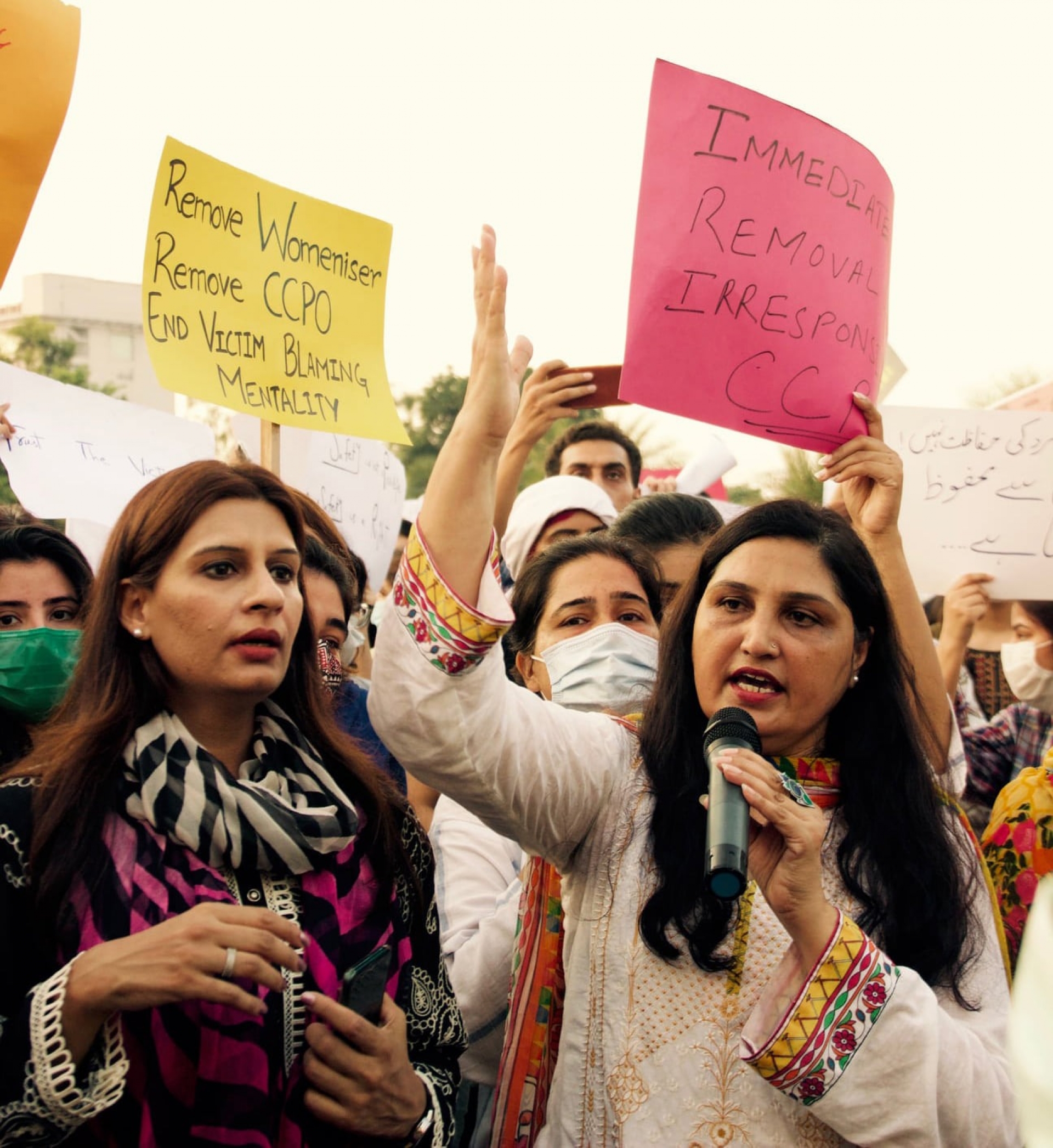Land and environmental rights in Indonesia
In 2020, the NHRF started expanding our work in Indonesia to support
communities that are victims of land grabbing and those who fight to reverse or prevent exploitative business practices. Legal Aid Foundation – Banda Aceh (LBH Banda Aceh) is training legal representatives (“paralegals”) in an indigenous community in Northern Sumatra to strengthen their capacity to defend their community land that is subject to land encroachment by palm oil plantation companies. Family of Riau’s Women and Children (RUPARI), a rural feminist organisation working on women’s issues and gender justice in the rural areas of the Riau province on Sumatra, works with women of the Sakai tribe that are living or working on the land exposed to exploitative palm oil plantation companies. The project aims to build a grassroots movement that will help women come together to defend themselves from the discrimination and marginalisation that they face.

The NHRF continued its support to the International Dalit Solidarity Network
The International Dalit Solidarity Network (IDSN) is a global network that works to bring international attention, solidarity, and action on caste discrimination as a critical human rights issue through engagement with the UN and other multilateral institutions. Throughout the COVID-19 pandemic, IDSN continued working with its members and their communities that are severely impacted by discrimination based on work and decent, namely Dalits and Dalit’s rights activists. Fear surrounding the COVID-19 virus has exacerbated existing ‘untouchability’ practices, leading to a rise in caste-based hate crimes. IDSN has worked with members on the ground to report this rise, elevating Dalit voices to the UN and EU, and also dedicated a COVID-19 section on their website.
COVID-19 response to indigenous communities in Mexico

Several Mexican grantees have played an important role in providing information and support to indigenous communities about COVID-19 in local indigenous languages. Some have distributed face masks and antibacterial gel as well as emergency relief for those hardest hits by the pandemic. Red Solidaria de Derechos Humanos, Michoacán, works to strengthen the participation of women in their local communities. As a response to COVID-19, the women involved in the project decided to create a “Community Care Brigade” that contributed food and information on COVID-19 to 120 families in the community reaching an estimated 2 400 people.
Red de Comunicadores Boca de Polen uses communication as a tool among indigenous communities in Chiapas, Mexico, to protect land and indigenous rights. In 2020 they established the network “Mayan voices network” consisting of young communicators from five indigenous communities, using radio to strengthen cultural identity and the recognition of their rights as indigenous peoples.
Using creative tools such as gardening, planting, and beekeeping, Mexican grantee Red De Formadoras Kualinemilis A.C., Puebla, gathered 30 indigenous women and youth to raise awareness of the land, environmental and territorial rights, including their own body as “the first territory.”

Main photo: Exploitative business practices have a detrimental impact on the
land and environment in Aceh, Indonesia. Photo: LBH Banda Aceh.


